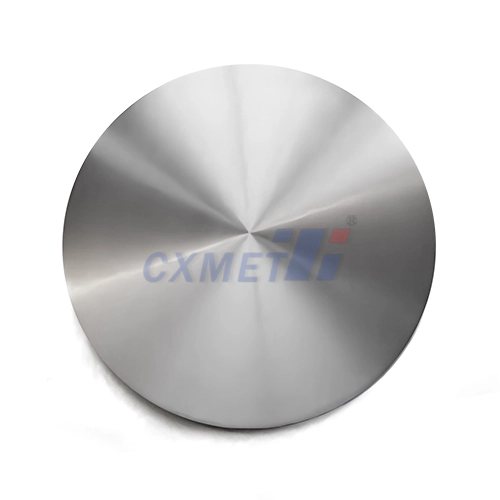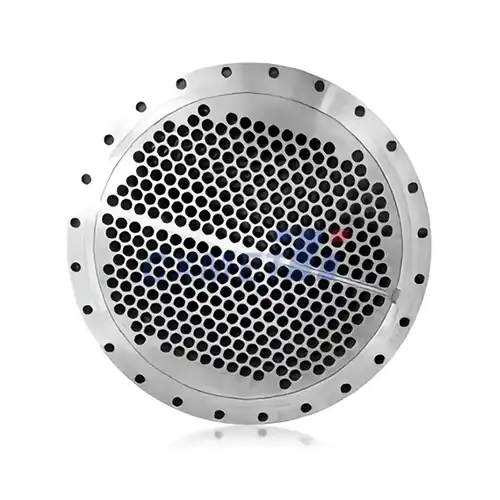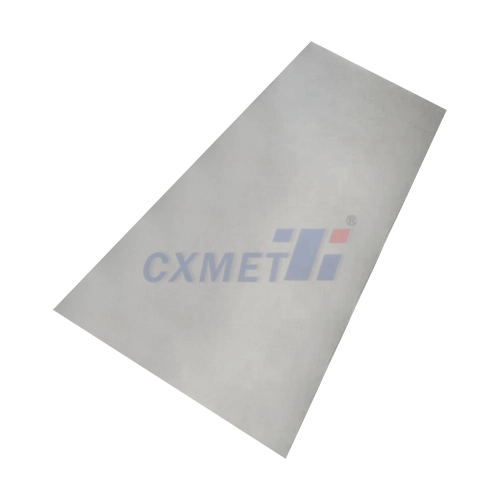- English
- French
- German
- Portuguese
- Spanish
- Russian
- Japanese
- Korean
- Arabic
- Greek
- German
- Turkish
- Italian
- Danish
- Romanian
- Indonesian
- Czech
- Afrikaans
- Swedish
- Polish
- Basque
- Catalan
- Esperanto
- Hindi
- Lao
- Albanian
- Amharic
- Armenian
- Azerbaijani
- Belarusian
- Bengali
- Bosnian
- Bulgarian
- Cebuano
- Chichewa
- Corsican
- Croatian
- Dutch
- Estonian
- Filipino
- Finnish
- Frisian
- Galician
- Georgian
- Gujarati
- Haitian
- Hausa
- Hawaiian
- Hebrew
- Hmong
- Hungarian
- Icelandic
- Igbo
- Javanese
- Kannada
- Kazakh
- Khmer
- Kurdish
- Kyrgyz
- Latin
- Latvian
- Lithuanian
- Luxembou..
- Macedonian
- Malagasy
- Malay
- Malayalam
- Maltese
- Maori
- Marathi
- Mongolian
- Burmese
- Nepali
- Norwegian
- Pashto
- Persian
- Punjabi
- Serbian
- Sesotho
- Sinhala
- Slovak
- Slovenian
- Somali
- Samoan
- Scots Gaelic
- Shona
- Sindhi
- Sundanese
- Swahili
- Tajik
- Tamil
- Telugu
- Thai
- Ukrainian
- Urdu
- Uzbek
- Vietnamese
- Welsh
- Xhosa
- Yiddish
- Yoruba
- Zulu
What are the Advantages of Using Gr11 Titanium Wire?
2024-10-11 10:37:12
Grade 11 titanium wire, commonly known as Gr11 titanium wire, is a remarkable material that has garnered significant attention across various industries. This alloy, consisting of titanium with small amounts of palladium, offers an exceptional combination of strength, corrosion resistance, and versatility. As we delve into the world of Gr11 titanium wire, we'll explore its unique properties, applications, and the numerous advantages it brings to modern engineering and manufacturing.
What makes Gr11 titanium wire unique compared to other materials?
Gr11 titanium wire stands out from other materials due to its exceptional combination of properties, making it a preferred choice for various applications across industries. Let's explore what sets this remarkable alloy apart:
1. Superior Corrosion Resistance:
One of the most notable features of Gr11 titanium wire is its outstanding corrosion resistance. The addition of palladium to the titanium base significantly enhances its ability to withstand harsh environments. This alloy forms a stable, protective oxide layer on its surface when exposed to oxygen, providing exceptional resistance to various corrosive media, including seawater, acids, and chlorine-containing substances.
2. High Strength-to-Weight Ratio:
Gr11 titanium wire boasts an impressive strength-to-weight ratio, making it an ideal choice for applications where both strength and weight reduction are crucial. This property is particularly valuable in aerospace and automotive industries, where every gram matters in terms of fuel efficiency and performance.
3. Excellent Biocompatibility:
The biocompatibility of Gr11 titanium wire is unparalleled, making it a go-to material for medical implants and devices. Its non-toxic nature and resistance to bodily fluids ensure long-term stability and safety when used in the human body.
4. Temperature Resistance:
Gr11 titanium wire maintains its mechanical properties across a wide range of temperatures. It performs exceptionally well in both cryogenic conditions and elevated temperatures, making it suitable for applications in extreme environments.
5. Low Thermal Expansion:
The low coefficient of thermal expansion of Gr11 titanium wire ensures dimensional stability across temperature fluctuations. This property is crucial in precision engineering and applications where maintaining tight tolerances is essential.
These unique properties make Gr11 titanium wire an exceptionally versatile material, capable of meeting the demanding requirements of various industries and applications. Its ability to combine strength, corrosion resistance, and biocompatibility in a single alloy sets it apart from many other engineering materials.
How does Gr11 titanium wire perform in extreme environments?
Gr11 titanium wire is renowned for its exceptional performance in extreme environments, making it a preferred choice for applications where materials are subjected to harsh conditions. Let's explore how this remarkable alloy stands up to various challenging scenarios:
1. Corrosive Environments:
Gr11 titanium wire excels in highly corrosive environments, outperforming many other materials. Its resistance to corrosion is particularly notable in:
- Seawater: The alloy's exceptional resistance to saltwater corrosion makes it ideal for marine applications, including offshore oil and gas platforms, desalination plants, and underwater sensors.
- Acids: Gr11 titanium wire shows excellent resistance to various acids, including hydrochloric, sulfuric, and nitric acids. This property is valuable in chemical processing industries and pollution control equipment.
- Chlorine-containing media: The wire's resistance to chloride-induced stress corrosion cracking makes it suitable for use in chlorine production facilities and swimming pool equipment.
2. High-Temperature Environments:
Gr11 titanium wire maintains its strength and structural integrity at elevated temperatures. It can withstand continuous exposure to temperatures up to 600°C (1112°F) without significant loss of mechanical properties. This high-temperature stability makes it suitable for applications such as:
- Jet engine components in the aerospace industry
- Heat exchangers in chemical processing plants
- Exhaust systems in high-performance vehicles
3. Cryogenic Applications:
On the opposite end of the temperature spectrum, Gr11 titanium wire exhibits excellent performance at extremely low temperatures. It retains its ductility and toughness in cryogenic environments, making it valuable for:
- Space technology applications
- Superconducting magnet systems
- Liquefied natural gas (LNG) storage and transportation
4. High-Pressure Environments:
Gr11 titanium wire maintains its structural integrity under high-pressure conditions. This property is crucial for:
- Deep-sea applications, where materials must withstand enormous hydrostatic pressures
- High-pressure chemical reactors
- Hydraulic systems in aerospace and industrial equipment
5. Oxidizing Environments:
The alloy's ability to form a stable, protective oxide layer makes it resistant to oxidation, even in highly oxidizing environments. This property is beneficial in:
- Aerospace applications where materials are exposed to high-altitude, oxygen-rich atmospheres
- Chemical processing involving oxidizing agents
- Medical sterilization equipment
6. Radiation Environments:
While not as radiation-resistant as some specialized alloys, Gr11 titanium wire performs well in environments with moderate radiation exposure. This makes it suitable for certain applications in:
- Nuclear industry components
- Medical equipment used in radiation therapy
- Space exploration vehicles and satellites
The exceptional performance of Gr11 titanium wire in these extreme environments is due to its unique microstructure and the stable oxide layer that forms on its surface. The addition of palladium to the titanium base enhances its corrosion resistance, while the natural formation of a titanium dioxide (TiO2) layer provides an additional barrier against environmental attack.
It's important to note that while Gr11 titanium wire excels in many extreme environments, proper material selection should always involve a thorough analysis of the specific application requirements, including temperature ranges, chemical exposures, mechanical stresses, and economic considerations.
What are the key industries and applications for Gr11 titanium wire?
Gr11 titanium wire has found its way into numerous industries due to its exceptional combination of properties. Let's explore the key sectors where this versatile material is making a significant impact:
1. Aerospace Industry:
The aerospace sector is one of the primary consumers of Gr11 titanium wire, utilizing its high strength-to-weight ratio and excellent fatigue resistance. Some specific applications include:
- Aircraft structural components
- Jet engine parts, such as compressor blades and turbine discs
- Fasteners and bolts for critical assemblies
- Spacecraft components that require high reliability in extreme conditions
- Satellite structures and components
2. Medical and Dental Industry:
The biocompatibility and corrosion resistance of Gr11 titanium wire make it an ideal material for various medical applications:
- Dental implants and orthodontic wires
- Orthopedic implants, including bone screws and plates
- Cardiovascular devices, such as stents and pacemaker leads
- Surgical instruments that require high strength and corrosion resistance
- Prosthetic components
3. Chemical Processing Industry:
The chemical inertness and corrosion resistance of Gr11 titanium wire are crucial in this sector:
- Heat exchangers for aggressive chemicals
- Reaction vessels and piping systems
- Pumps and valves for corrosive fluids
- Chlor-alkali production equipment
- Pollution control devices
4. Marine and Offshore Industry:
The exceptional corrosion resistance of Gr11 titanium wire in seawater environments makes it valuable in:
- Offshore oil and gas platforms
- Desalination plants
- Underwater sensors and monitoring equipment
- Marine research instruments
- Boat and ship components exposed to saltwater
5. Energy Industry:
Gr11 titanium wire finds applications in various energy-related fields:
- Geothermal power plants, where it resists corrosion from high-temperature brines
- Nuclear power plant components, benefiting from its radiation resistance
- Solar panel frames and mounting systems, utilizing its corrosion resistance and light weight
- Hydrogen fuel cell components, leveraging its resistance to hydrogen embrittlement
- Wind turbine components, particularly in offshore installations
6. Automotive Industry:
While not as widely used as in aerospace, Gr11 titanium wire is finding increasing applications in high-performance and luxury vehicles:
- Exhaust systems, particularly in racing applications
- Suspension springs and other lightweight components
- Turbocharger parts
- Valve springs in high-performance engines
7. Electronics Industry:
The electrical conductivity and corrosion resistance of Gr11 titanium wire make it suitable for:
- Connectors in harsh environments
- Electrodes for specialized applications
- Housings for sensitive electronic equipment used in corrosive or marine environments
- Semiconductor manufacturing equipment
8. Sports and Recreation:
The high strength-to-weight ratio of Gr11 titanium wire makes it popular in sporting goods:
- Bicycle frames and components
- Golf club shafts
- Tennis racket frames
- High-end fishing reels and rods
- Climbing equipment
9. Jewelry and Decorative Arts:
The hypoallergenic properties and unique appearance of Gr11 titanium wire have led to its use in:
- Body piercing jewelry
- Contemporary jewelry designs
- Sculptural elements in modern art
- High-end watch components
10. Architecture and Construction:
While not as common as other materials, Gr11 titanium wire is used in specialized architectural applications:
- Structural elements in corrosive environments
- Facade cladding and roofing in coastal areas
- Decorative elements in high-end architectural projects
- Reinforcement for concrete structures in aggressive environments
These diverse applications demonstrate the versatility of Gr11 titanium wire across various industries. Its unique combination of strength, corrosion resistance, and biocompatibility continues to open new possibilities for engineers and designers seeking high-performance materials for challenging environments.
As technology advances and new challenges emerge, the use of Gr11 titanium wire is likely to expand into even more applications and industries. Ongoing research into improved manufacturing techniques and surface treatments may further enhance its properties, making it an even more attractive option for future innovations.
In conclusion, the advantages of using Gr11 titanium wire are numerous and significant. Its unique blend of properties, including high strength, exceptional corrosion resistance, and biocompatibility, make it an invaluable material in a wide range of industries and applications. From aerospace and medical implants to chemical processing and marine environments, Gr11 titanium wire continues to prove its worth as a versatile and reliable material. As we continue to push the boundaries of technology and explore new frontiers, the importance of materials like Gr11 titanium wire in enabling these advancements cannot be overstated.
At SHAANXI CXMET TECHNOLOGY CO., LTD, we take pride in our extensive product range, which caters to diverse customer needs. Our company is equipped with outstanding production and processing capabilities, ensuring the high quality and precision of our products. We are committed to innovation and continuously strive to develop new products, keeping us at the forefront of our industry. With leading technological development capabilities, we are able to adapt and evolve in a rapidly changing market. Furthermore, we offer customized solutions to meet the specific requirements of our clients. If you are interested in our products or wish to learn more about the intricate details of our offerings, please do not hesitate to contact us at sales@cxmet.com. Our team is always ready to assist you.
References:
1. ASTM International. (2021). ASTM B863-21 Standard Specification for Titanium and Titanium Alloy Wire.
2. Lutjering, G., & Williams, J. C. (2007). Titanium (2nd ed.). Springer-Verlag Berlin Heidelberg.
3. Donachie, M. J. (2000). Titanium: A Technical Guide (2nd ed.). ASM International.
4. Boyer, R., Welsch, G., & Collings, E. W. (Eds.). (1994). Materials Properties Handbook: Titanium Alloys. ASM International.
5. Leyens, C., & Peters, M. (Eds.). (2003). Titanium and Titanium Alloys: Fundamentals and Applications. Wiley-VCH.
6. Schutz, R. W., & Thomas, D. E. (1987). Corrosion of titanium and titanium alloys. In Metals Handbook (9th ed., Vol. 13, pp. 669-706). ASM International.
7. Elias, C. N., Lima, J. H. C., Valiev, R., & Meyers, M. A. (2008). Biomedical applications of titanium and its alloys. JOM, 60(3), 46-49.
8. Peters, M., Kumpfert, J., Ward, C. H., & Leyens, C. (2003). Titanium alloys for aerospace applications. Advanced Engineering Materials, 5(6), 419-427.
9. Yamada, M. (1996). An overview on the development of titanium alloys for non-aerospace application in Japan. Materials Science and Engineering: A, 213(1-2), 8-15.
10. Faller, K., & Froes, F. H. (2001). The use of titanium in family automobiles: Current trends. JOM, 53(4), 27-28.


